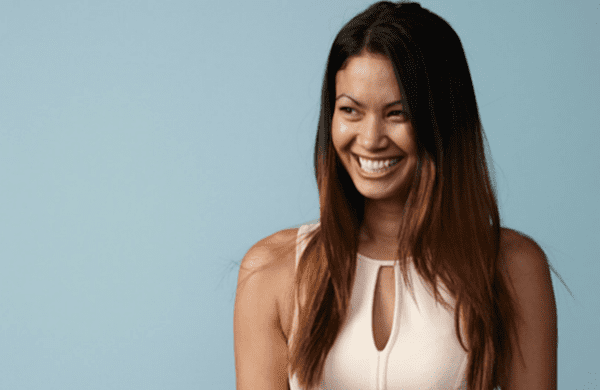But while all that was going on, thousands of founders across the country also had their heads down working, putting in hours upon hours to try and get their next venture off the ground. And while some of those may fail, many will go on to become healthy contributors to Australia’s thriving startup ecosystem.
With that in mind, our friends at StartUpSmart compiled some of the best advice founders and business leaders passed on to startups over the year, with the hopes of giving you something to think about as you get settled into 2019.
They’re tips that can apply to any founder — but may also be relevant to plenty of employees too.
Don’t be a dickhead
Though it might seem like a point which doesn’t need making, discrimination, exclusion, harassment and general shitty behaviour is still prevalent in the global startup community.
In an attempt to combat this, a group of local venture capitalists banded together to make an industry-first Model Code of Conduct for the local startup scene, encouraging companies to sign up to promote a culture of diversity and equality Down Under.
“There has never been a better time to start a company [in Australia]. Collectively, we need to ensure that opportunity is wide open to those who seek it, and that the startup community reflects the dynamism and diversity of the wider population,” Blackbird VC partner Samantha Wong (pictured above) said in the announcement of the code.
Speaking to StartupSmart at the time, Daniel Petre from AirTree Ventures said the code was developed in response to the global #MeToo movement, and startup founders would have to be “completely stupid or naive” to think similar harassment cases weren’t happening here.
The code calls on VCs and startups in general to recognise power imbalances between staff, investors and founders, along with a number of other points including calling on businesses to avoid creating overly sexualised environments.
Petre said at the time AirTree had long been running a “no dickheads” policy, cracking down and refusing to fund for anyone who comes across rude, aggressive or overly patronising. He hopes the rest of the industry follows suit.
“The people you’re trying to change is the dickheads. They will only change if they don’t get promoted, or don’t get funding,” he said.
Don’t listen to those who say you can’t
“If you believe the one person who says you can’t, you have to believe the one person who says you can.”
Billion-dollar design startup founder Melanie Perkins probably would have never gotten to where she is today if she’d listened to everyone who said she couldn’t. A young, female, Australian founder from Perth, Perkins wrote for StartupSmart that if she’d looked at the chance of her getting funding, she “probably would have shied away from even trying in the first place”.
Nevertheless, she persisted, and today heads up one of Australia’s most promising startups. Sharing her experience, she advised startup founders to be determined, focus on your wins, and — most importantly — don’t worry about the haters.
“There are a number of people in this world who are archaic and small-minded — and there’s almost nothing we can do about it,” she said.
“There are more than seven billion people on this planet, which means there are a lot of really great people out there. Focus on finding the nice ones, and don’t worry about those that aren’t.”
Stop “killing it”
I know it’s fun to boast about the growth of your startup and how much you’re ‘crushing it’ and ‘killing it’, but earlier this year a number of business leaders in the Aussie startup space issued a decree: the language of startups needs to change.
Annie Parker. Source: Supplied.
The call originated from former Fishburners head and now global lead for Microsoft’s Startups program Annie Parker, who said in a tweet in February she’d be eschewing those terms, and instead, looking to “build, grow and elevate” over 2018.
Speaking to StartupSmart at the time, Parker called on the local startup scene to stop using the language, which she believes appeals to certain sections of the startup community over others, namely “bro-centric” white men.
“Words matter. Whether you like it or not, potential employees, customers or investors will make judgments about you or your business based on how the language you use makes them feel,” she said at the time.
“The startup lingo of killing, crushing and smashing things is all so negative, and the irony is it actually doesn’t represent the startup ecosystem at all. As builders and makers, we are nurturing, crafting and growing. So it’s a bit odd that we don’t use more positive words to describe our industry.”
Think critically
You need a lot of guts, chutzpah and ambition to be a startup founder — and even more to be a successful one. However, that doesn’t mean you need to blindly drink the Kool-Aid of every self-helper, hustler and growth hacker out there.
In fact, a study out of the UK in November argued overly optimistic entrepreneurs and employees actually had less success, and that “self-belief may enhance performance but also result in participation in activities doomed to failure”. Basically, those who are overly optimistic can be inclined to see silver linings where there are none, which could lead them down a path of failure.
While a number of founders told StartupSmart they considered themselves unfettered optimists, Girl Geek Academy founder Sarah Moran said her outlook was more realistic, and pessimistic in parts.
“I never assume everything will work. I assume everything will go terribly, and if terrible is still okay, then that’s a good outcome,” she says.
“You’ve got to know the best- and worst-case scenarios to be able to make a decision, and you’ve got to be realistic about what the worst-case scenario actually is.”
Elon Musk on the Joe Rogan Experience podcast. Source: YouTube.
In the same vein, founders were also encouraged to think critically about their heroes after startup golden child Elon Musk decided to reveal his true colours this year.
A long history of problematic choices and opinions bubbled to the fore in July after the Tesla and SpaceX founder lashed out at one of the Thai cave rescuers on Twitter, baselessly accusing him of being a paedophile, twice. Musk is currently being sued for over $75,000 through a defamation suit filed by the diver.
Musk was then later forced to step down as chairman of the Tesla board and pay a $55 million settlement to the Securities and Exchange Commission in the US after he declared via Twitter plans to take Telsa private at a share price of $US420 million, which ended up being untrue.
Speaking to StartupSmart, local founder Kunal Kalro said it was time startup founders stopped with the “blind faith” around figures such as Musk and Peter Thiel.
“I think there’s too much blind faith with Musk. You just need to look on Twitter and see who’s responded to anything Musk says — there’s a legion of fanboys who live off his every word, and that’s dangerous,” he said.
“Having more diverse people to look up to is really important. We need to help people of colour, women, and other minorities and inspire them to take on challenges that are relevant to them.”
Be indie
Finally, in 2019 it might be time to think about growing your startup at a steady, profitable rate rather than a blazing clip — one of the key ethos’ of being an indie business.
A form of business strategy promoted by local founders such as Kate Kendall and Hugh Stephens, heading down the ‘indie way’ involves getting a little bit of funding on board, and the focusing on growing a strong business via revenue and profits.
“Their growth profile is usually a lot smaller than a ‘traditional startup’ and their expectations are never to swing for the fences — instead to produce a stable profitable company,” Stephens said earlier this year.
“Typically indie businesses don’t need a lot of capital to get going (like a bootstrapped company) or operate. You don’t see (m)any of these businesses who are launching hardware products or doing ‘deep tech’, but there are tons of opportunities in software, for example.”
So next time you get the entrepreneurial itch, instead of trying to grow your venture with millions in VC and rapid-fire growth, try the indie way. You might even like it.
This is an edited version of a story that first appeared on StartUpSmart and is republished here with permission.





